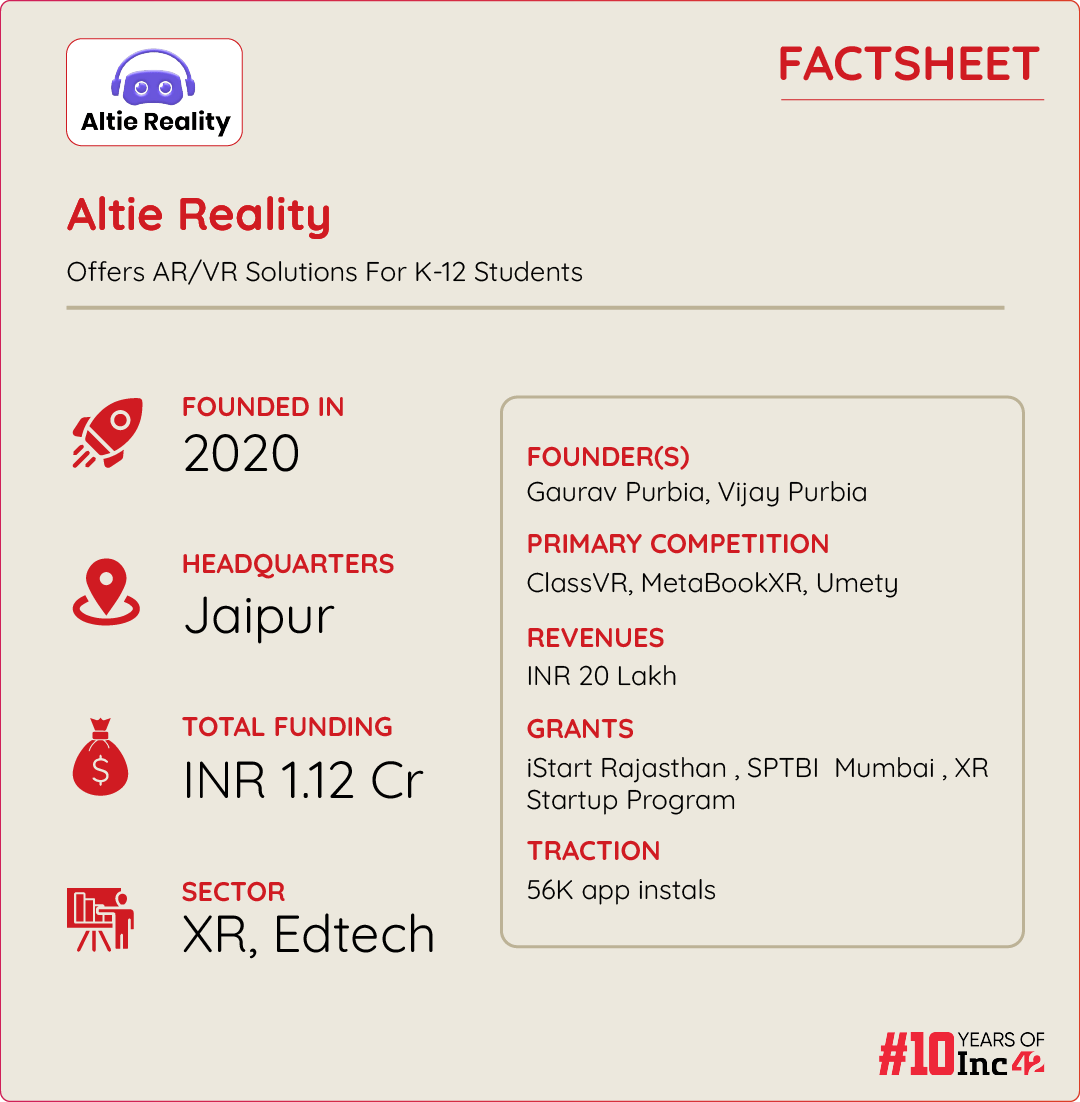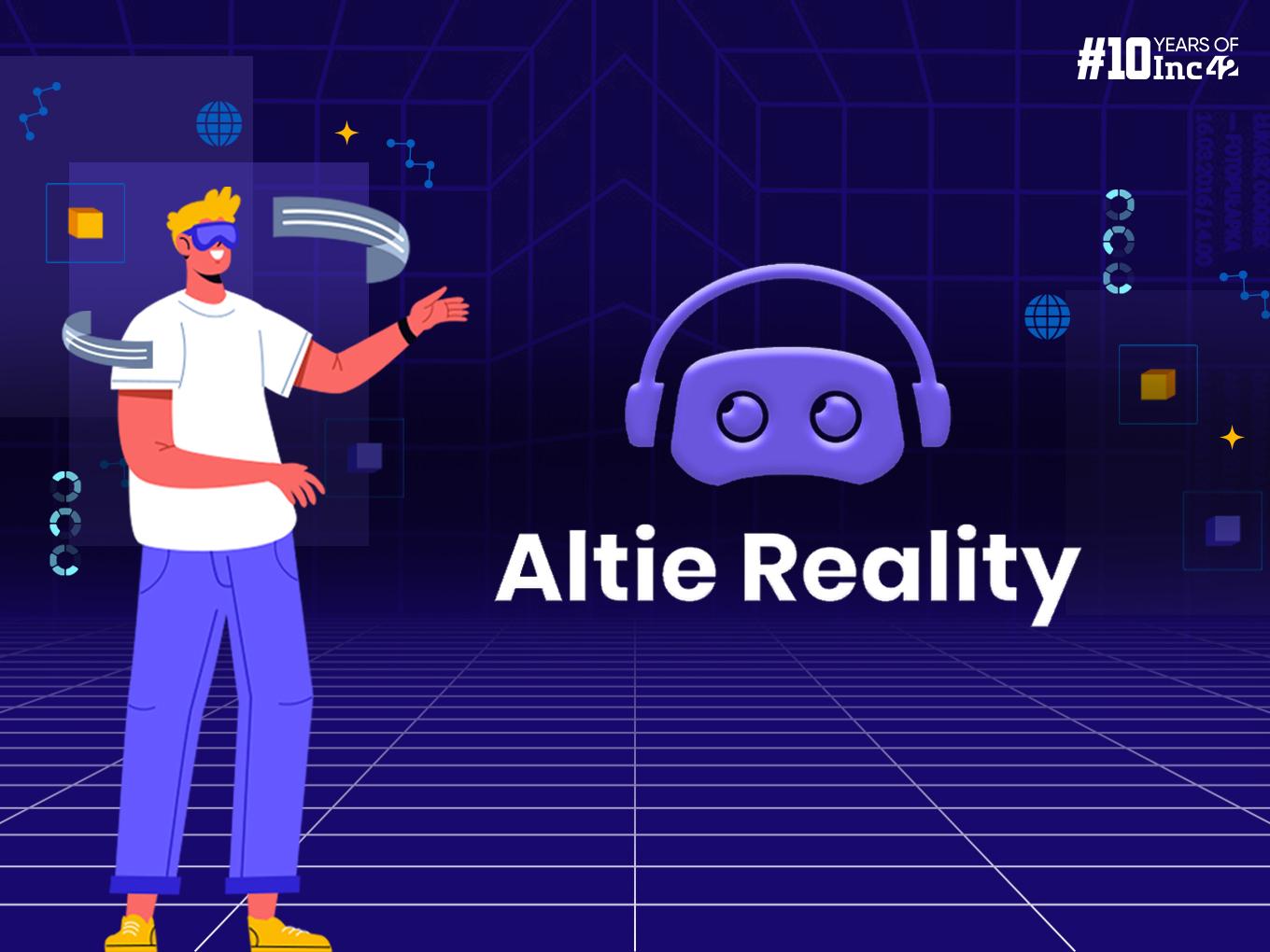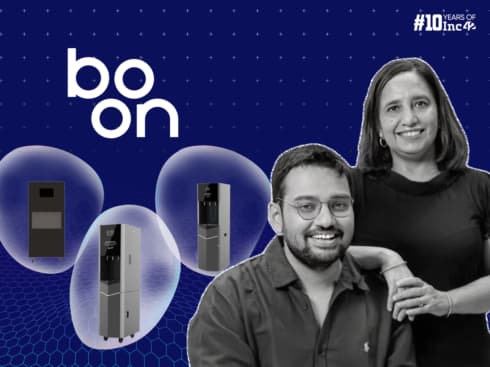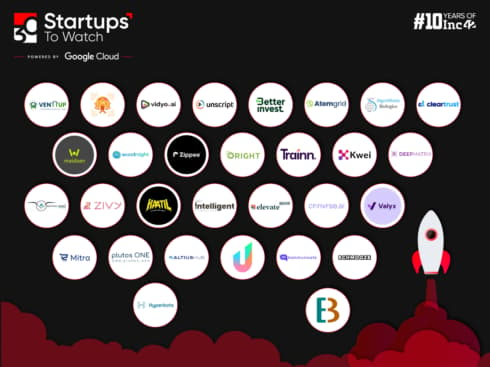Altie Reality offers a range of AR/VR solutions, including Metaverse as a service and digital twin creation
LearnXR, Altie Reality's AI-powered platform, empowers teachers to seamlessly incorporate XR into their classrooms
The startup offers LearnXR monthly and annual subscription plans at INR 99 and INR 699, respectively
In the ever-evolving educational landscape, augmented and virtual realities (AR/VR) have transformed how students engage with learning, as these emerging technologies have seamlessly integrated into the academic paradigm.
Graced by the magic of this tech, one can well imagine students taking a deep dive into biology lessons, understanding the intricacies of human anatomy, or getting immersed in history lessons with the help of AR/VR.
But despite India’s impressive digital penetration, reaching 52% active internet users nationwide, the gap between urban and rural areas is quite persistent. According to media reports, rural internet users are expected to increase from 399 Mn+ in 2022 to 506 Mn+ in 2025, at a CAGR of 26%. While this signifies progress, the edtech revolution, particularly AR/VR applications in education, is still largely confined to urban pockets. Worse still, it remains a futuristic concept far from widespread adoption.
Founded in 2020 by Gaurav Purbia and Vijay Purbia, extended reality (XR) edtech startup Altie Reality offers a range of AR/VR solutions, including digital twin creation, which digitally replicates physical assets into virtual environments. By integrating these technologies into K-12 classrooms across India, Altie Reality aims to boost student engagement and enhance learning experiences, reaching even the remotest of areas.
LearnXR, Altie Reality’s AI-powered platform, empowers teachers to seamlessly incorporate XR into their classrooms. This tool democratises access to affordable learning experiences. Its app can be installed directly from the Android Play Store .
The LearnXR app offers a monthly and an annual subscription plan of INR 99 and INR 699, respectively. Moreover, the LearnXR lab model of the startup operates on a franchise model for schools, besides offering bulk licensing for 500 and 1,000 students.
This model enables Altie Reality to expand its presence in various schools without directly managing each location, as the franchisees (schools and educational institutions) handle day-to-day operations. The free version of the platform hosts targeted ads to generate revenue from advertising. It clocked INR 20 Lakh in FY24 and is targeting INR 50 Lakh in FY25.

Altie Reality’s Journey So Far
Traditional educational methods often fall short by neglecting the power of experiential learning. Recognising this gap, BTech graduates Gaurav and Vijay set out to bridge it in the Rajsamand district, Rajasthan. They leveraged Google’s Cardboard VR (now discontinued) to offer immersive learning experiences to students.
Fueled by the rapid adoption, the duo launched Altie Reality in September 2020. This initiative materialised in the form of LearnXR, a mobile app easily downloadable from the Android app store.
LearnXR offers AR/VR learning modules across various subjects, from history and geography to science and beyond. The app goes a step further, providing ‘immersive field trips’ to iconic locations like the Taj Mahal and even ‘out-of-this-world’ tours to space. Additionally, students can engage with bite-sized AR games through the app.
To guarantee a seamless user experience within the app, LearnXR partners with schools and educational technology companies. This collaboration allows for smooth integration with popular learning management systems (LMS).
Despite the apparent ease, Gaurav acknowledges the challenges faced by a new AR/VR startup, especially one hailing from a Tier II city. Educating potential customers about the advantages of AR/VR in education demanded significant effort.
To bridge this knowledge gap, the founders actively participated in educational workshops and conferences. This direct approach allowed them to showcase LearnXR’s value proposition to educators and decision-makers, ultimately leading to customer acquisition.
Furthermore, the startup adopted a classic SaaS strategy by offering free trials and demos to potential customers, enabling it to nurture long-term relationships.
Hardware Pivot That Fuelled Growth
Though the startup initially focussed only on creating educational content for AR/VR through its LearnXR app, it gradually identified the need for more immersive learning tools. The pivot from a service-focussed platform to a holistic AR & VR service provider meant it had to develop comprehensive XR hardware.
To address this need and create a more holistic AR & VR experience, iStart Rajasthan provided crucial incubation support during the ideation and prototype stages.
iStart Rajasthan’s support, along with ideation and viability grants worth INR 6 Lakh, allowed the startup to develop proprietary technologies. Besides, iStart Rajasthan also provided it with networking opportunities, said Gaurav.
“This pivot was driven by feedback from educational institutions and market trends indicating a demand for comprehensive XR tools that improve learning outcomes,” he added.
Altie Reality offers a learning app called LearnXR, which can be easily installed from the Android Play Store. Additionally, it is developing AR/VR hardware, an advanced Extended Reality (XR) tool designed to facilitate intuitive and interactive engagement with AR/VR objects.
According to the founders, it has widespread application in education, healthcare, real estate and manufacturing sectors. For instance, students can enhance their understanding of complex concepts by interacting with 3D models in virtual classrooms and surgeons can improve their skills and precision by simulating and practising surgeries on virtual patients.
Gaurav said that the XR hardware prototype is being supported by Nidhi Prayas (an initiative by the Department of Science and Technology, Government of India), and its patent process has been initiated with assistance from the Sardar Patel Technology Business Incubator (SPTBI) in Mumbai.
Is There A Brighter Future For Indian Education?
The global AR and VR in education market size was valued at $3.8 Bn in 2023 and is projected to reach $14.2 Bn by 2028, growing at a CAGR of 29.6%.
It is reported that with the ongoing implementation of the National Education Policy (2020), 50% of Indian classrooms will adopt AR/VR in the next three years. VR hardware is also expected to become cheaper and more affordable during this timeframe. Startups such as Altie Reality, ClassVR, Umety are riding on this growth.
However, adequate infrastructure plays a crucial role here. High-quality AR and VR experiences often rely on a high-speed internet connection to stream content, access online resources and enable real-time collaboration. Educators and students may also need technical assistance to understand the functionalities of AR and VR software, set up devices and troubleshoot them if issues arise.
Currently, Altie Reality has a daily active users/monthly active users (DAU/MAU) ratio of 20%, for its 56K initials of LearnXR app. By enhancing the user experience and the content, Altie Reality wants to boost average engagement from 9 to 15 minutes. It also aims for a completion rate of 70% for courses started by users, indicating high content engagement and relevance.
In the short term, it is working on refining the LearnXR Meta Quest app. Post signing an MoU with the state education department of Rajasthan, the startup is also eyeing the implementation of the LearnXR Labs in government-run schools in Rajasthan.
































 Ad-lite browsing experience
Ad-lite browsing experience